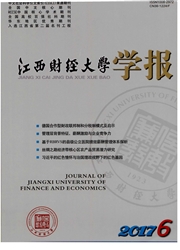

 中文摘要:
中文摘要:
由于经典FDI理论无法完整解释中国经济对外资严重依赖的特征,因而针对中国特殊的制度环境,构建环境-战略-行为-绩效(ESCP)分析框架,考察制度约束下FDI对产业结构的具体影响。研究发现,制度约束导致流入中国的FDI具有"规模过大、质量偏低、项目类型太小、行业分散"等不同于其他国家的非典型特征。制度约束下FDI普遍缺乏关联效应,正面溢出效应受到抑制,收入漏出与结构锁定效应凸显,不利于产业增长与产业内部的高级化进程。新时期引资政策必须以改善制度环境为依托,吸引高质量外资以促进产业结构优化升级。
 英文摘要:
英文摘要:
Because the classical FDI theory cannot explain completely the characteristics of Chi- nese economy depending severely upon foreign capital, this paper, in view of China' s particular in- stitutional environment, constructs an analytical framework of environment-strategy-conduction-perfor- mance (ESCP), which examines the specific effects of FDI on industrial structure under the institu- tional constraints. It is found that the institutional constraints have brought non-typical characteristics to China's FDI inflow, such as "too large scale, lower quality, too small project type, dispersed in- dustries" , etc. which differs from those of other countries. Under the institutional constraints, China' s FDI inflows generally lack correlation effects, the positive spillover-effect is suppressed, the in- come-leakage effect and the structure-locking effect are highlighted, which go against the industrial growth and the advance process inside the industry. The policies of attracting foreign capitals in the new period must be based on the improvement of the institutional environment to attract high quality foreign capitals, so as to promote the optimization and upgrading of the industrial structure.
 同期刊论文项目
同期刊论文项目
 同项目期刊论文
同项目期刊论文
 期刊信息
期刊信息
